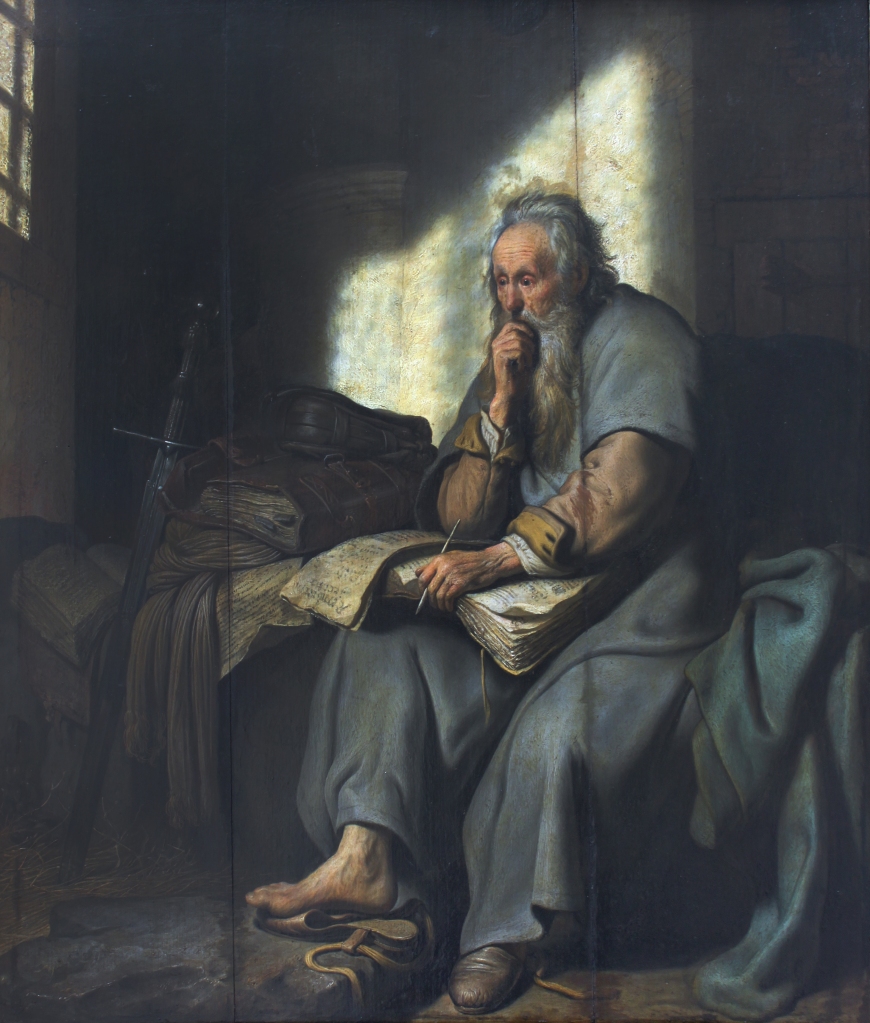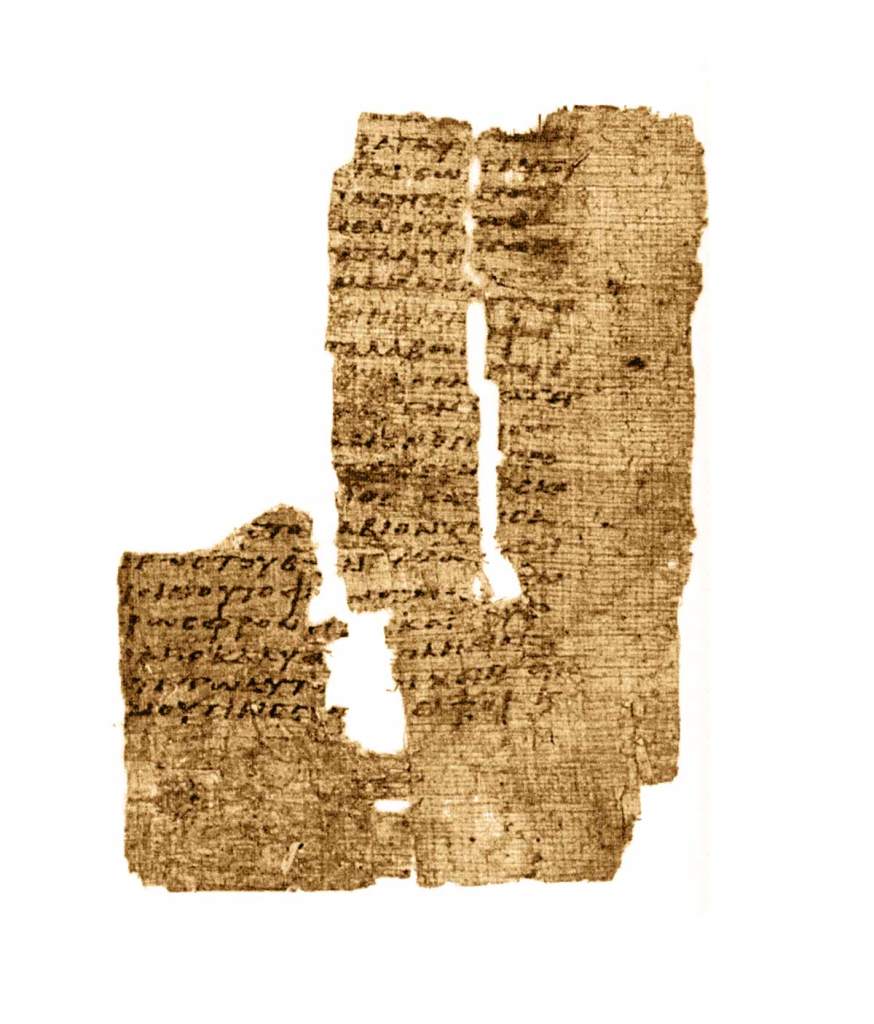
Originally preached at Messiah Evangelical Lutheran Church, East Setauket, New York.
Grace, mercy, and peace to you from God our Father, and our Lord and Savior, Jesus Christ. Amen.

Have you ever had something happen in your life that was so seminal, so world-altering, that it changed the way you lived your life from then on out? That you read or heard something that drastically changed your worldview? Something like this happened to Teddy Roosevelt when he read Upton Sinclair’s novel, The Jungle, in 1906. Roosevelt was so horrified by the description of industrialized meat production that the famed hunter and carnivore decided to become a vegetarian, and tasked the federal government with investigating the conditions present in meatpacking plants and founded what would become the Food and Drug Administration. Sinclair’s novel profoundly changed Roosevelt’s life, as well as the lives of many others, though not in the way he wanted–he wanted to promote a socialist political platform. However, he (as he put it), while aiming for America’s heart, hit it squarely in the stomach. This one piece of news–and it wasn’t good–that Americans were eating doctored food, changed the way we live forever.
Paul’s letter to the Philippians is a letter to people who have already received good, life-changing news. Paul had evangelized the church at Philippi, and they had thrived on the Gospel. This epistle is a “thank you note” to the church at Philippi, because they had persevered in the faith once given to them in St. Paul’s preaching, and Paul, now imprisoned in Rome and awaiting trial from the emperor, gives the congregation further advice for living as Christians in the world. He tells them of his consolation in Christ, his confidence in the work his Lord has done for him and them, and his contentment in all situations because Christ has overcome for him. Indeed, all he has now in his imprisonment, all that matters to him now, is Jesus.

Paul is writing to the Philippians at a difficult time, for him and for them. He is in prison in Rome awaiting trial, and it is likely that he knows that he will probably die. They, while doing well, are experiencing some disagreements in their congregation, as well as pressure from groups outside the congregation that could cause trouble or lead people astray. And of course, the church everywhere is growing, and receiving scrutiny from the empire. In only a few short years will Christians all throughout the empire be the targets of persecution at the hands of the Romans. So Paul’s words come as a helpful reminder, to strengthen and encourage the Christians at Philippi to carry their faith and witness far into the future. The people of Philippi were given good, life-changing news through Paul, and he entrusts his advice to them in this letter to strengthen them.
And what was the news Paul gave them? Listen to what Paul says:
“Have this mind among yourselves, which is yours in Christ Jesus, who, though he was in the form of God, did not count equality with God a thing to be grasped, but emptied himself, by taking the form of a servant, being born in the likeness of men. And being found in human form, he humbled himself by becoming obedient to the point of death, even death on a cross. Therefore God has highly exalted him and bestowed on him the name that is above every name, so that at the name of Jesus every knee should bow, in heaven and on earth and under the earth, and every tongue confess that Jesus Christ is Lord, to the glory of God the Father. (Philippians 2:5–11, ESV)
This is the good news from Paul. Prior to hearing about what Jesus had done, the congregation at Philippi was under the law; they were dead in their sins, not under the covenant given in Christ’s death and resurrection. But once they heard the Gospel and trusted in its life-giving promise, they became heirs of God, citizens of his kingdom, and freed from their sins. They were given new life and new freedom to live the way God desires all his children to; to live for one-another rather than themselves, trusting in Jesus for their salvation and for their strength. This is what Paul exhorts them to continue in. Their lives were changed forever by the Gospel, and as changed people, they live in a manner different from that in which they lived previously.
It’s because they have heard this life-changing word that Paul exhorts them in these words: “Therefore, my beloved, as you have always obeyed, so now, not only as in my presence but much more in my absence, work out your own salvation with fear and trembling, for it is God who works in you, both to will and to work for his good pleasure.” (Philippians 2:12–13, ESV). Now, when we hear Paul saying, “work out your salvation with fear and trembling,” we might be tempted to think that he wants the congregation at Philippi to figure out how to “get saved.” Remember Pelagius from last week, who believed that we could earn our salvation through our works? Reading Paul out of context here could make what he says sound Pelagian. But no, that’s not what Paul is saying here at all. Because the Philippians have heard the good news and have faith in their Risen Savior, they aren’t “working out” their salvation–they’re “living it” out. They’re literally making it evident in their lives. That is one way we can translate the Greek word, κατεργάζεσθε, “to make evident.” So what Paul means, essentially, is that in these troubled times, more than ever, the Philippians shouldn’t hide their faith, but in extreme awe of the glorious things God has done for them in Jesus, they should live it out, taking care not to do things to undermine their witness. They should seek to actively live out their faith in their interactions with one another and with their neighbors, all the while pointing to their savior. They should let their Christian “freak-flags fly.” When the challenge to their faith comes, they should meet it head-on, faithful to the great truth about Jesus that Paul had taught them.
So what does this all mean for us? Paul was writing to a specific context. What about the people here in the pews at Messiah Evangelical Lutheran Church in East Setauket, or joining us online via the livestream?
You and I are living in uncertain times, and I’m not sure it’s an exaggeration to say that we Christians are going to face increased discrimination and ridicule in the public square in coming years. Our brothers and sisters in other parts of the world are experiencing incredible levels of persecution–just ask our brothers and sisters in Christ in Nigeria and Iran. It could certainly happen here, and in a way it already is. Churches in different parts of the country recently have been burned or desecrated, and there have been some fringe voices calling for the destruction of Christian sacred art. I imagine that the coming discussions over the new Supreme Court justice nomination will lead to all manner of misrepresentations of the Christian faith in the news media; it seems to happen every time a Christian is put forward for public office who actually believes what Scripture teaches, and it seems that nobody in either the media or the government really understands what the establishment clause in the First Amendment means anymore. So what are we, as Christians here in this post-Christian context that doesn’t really understand us and which could turn on us at some point in the future, to do?

Well, we do what Paul suggested to the Philippians. We’ve heard the good news, we have been saved from our sins through the blood of Christ. Our lives have been changed forever by the promise of Christ, given to us in his incarnation, death, resurrection, and ascension. So now we, too, are enjoined to work out [our]own salvation with fear and trembling, for it is God who works in [us], both to will and to work for his good pleasure. God works through us–we are his children through the New Covenant forged with us by Christ in baptism, and we are his hands and feet in the world. We should live out our faith in this world, and do the good works that he has set up for us in the Holy Spirit to do. We should let our Christian freak-flags fly. What does this look like? Well, simply, it looks like being good to your neighbor, or in performing your given vocations well. Being a good mother or father to your children. Being a good son or daughter to your parents. Doing your job to the best of your ability. Helping your neighbors out when they need it and seeing to their welfare. Caring for the homeless and the hungry in your community. Defending the defenseless. Caring for your animals. Treating others as you would be treated. Mourning with others as they mourn, and rejoicing with them when they rejoice. Sharing the Good News of the Kingdom of God with those who need to hear it. Not neglecting the assembly of your fellow believers, and not neglecting the sacraments. And all the while doing these things mindful and in awe of the great work that Jesus has done for you.

And should you be worried about failing in doing these good works well because your flesh is still inclined to sin, remember what Paul says: it is God who works in you, both to will and to work for his good pleasure. God will bring about what he desires in spite of your best efforts to mess it up! So live out your salvation in fear and trembling because God is working through you, and take comfort in knowing that he is working through you. He will use you to bring about his good purposes. And be brave, too, knowing that whatever happens in this world, and however the world views you because you bear the mark of Christ, God is using you to do his will. So seek out whatever is honorable, whatever is just, whatever is pure, whatever is lovely, whatever is commendable, if there is any excellence, if there is anything worthy of praise, think about these things (Php 4:8), so that you do not give a poor witness to the good news you have received, but even more so that you demonstrate the reason for your hope. Perhaps others will see your good works and want to know more about this good news that you and I have received from our God, so that they, too, might join in confessing that Jesus Christ is Lord and join you in working out their salvation with fear and trembling, doing the works God works in them, to will and to do. Our lives have been changed forever through what Jesus has done for us. Let us go then and do for others, doing his will in an unbelieving world. Amen!